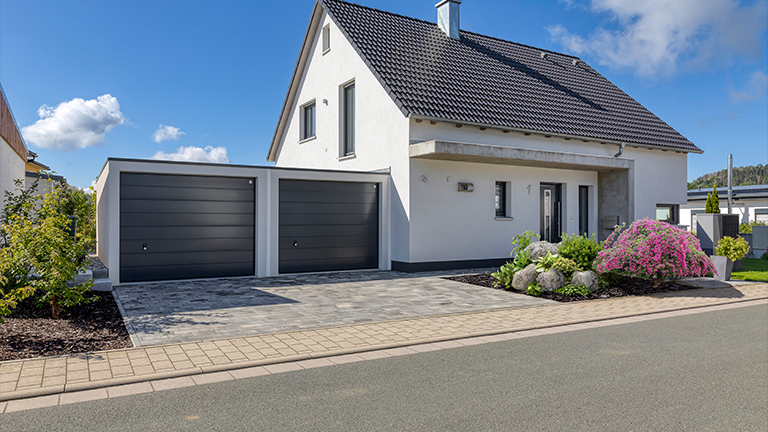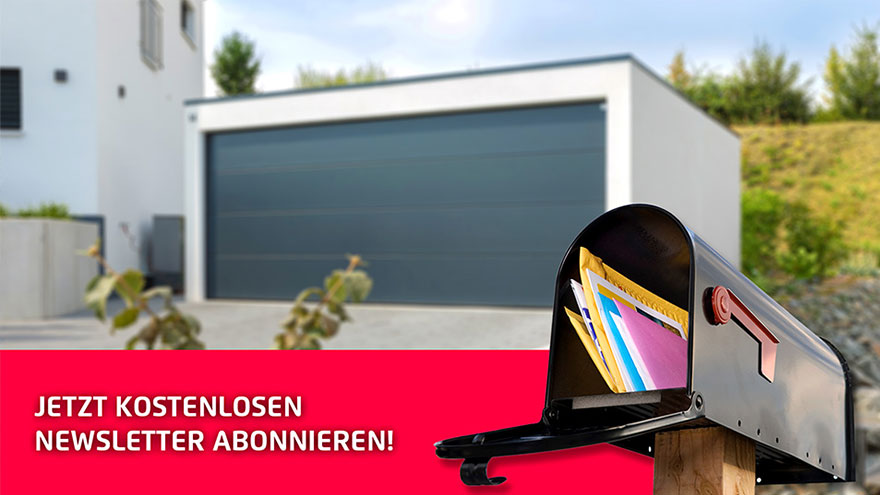
When you can finally move into that long-awaited property with its own single or double garage, many people think that the garage has finally solved the space, parking, and storage problems that were usually pressing before. After all, with a garage like this, there is plenty of extra space available that can – or rather could – be used for a wide variety of purposes…
Unfortunately, it’s not quite that simple:
The use of a garage is very strictly regulated here!
In a detailed online article entitled “What you are allowed to use your garage for – and what you are not allowed to use it for“FOCUS Online Magazine provides an obvious overview (the article also includes a video) of how quickly garage owners can run the risk of having to pay expensive fines for violating the respective country-specific, regional, or local regulations.
We have compiled a list of frequently asked questions (and answers) to help you through the jungle of guidelines and rules.
One more note in advance: The following information cannot, should not, and must not replace binding legal advice from a lawyer. We refer to renowned sources such as the ADAC, the portal VERIVOX, or the mobility magazine of the portal bussgeldkatalog.org, etc., but there is no guarantee.
How can a garage actually be used?
Frequently asked questions and answers.
1. How and by which regulations is the use of garages actually regulated in Germany?
The use of garages in Germany is primarily regulated by the garage ordinances of the individual federal states. These stipulate, among other things, that garages are primarily intended for parking motor vehicles. In addition, these ordinances often set out specific requirements for the construction and operation of garages, including safety and fire protection regulations. Furthermore, existing regional or local rules or regulations may also be relevant.
2. What is generally allowed to be stored in garages? So apart from the car…
In addition to motor vehicles, the main items that may be stored in garages are those directly related to vehicle use.
This includes, for example, tires, roof racks, jacks, and operating materials such as engine oil and windshield cleaner, but only in small quantities.
3. What may not be stored in garages? What about garden or leisure equipment, for example? Are they officially allowed to be parked or stored?
Garages may not generally be used as storage or storage rooms. This means that the storage of items unrelated to the vehicle, such as garden furniture, sports equipment, or barbecues, is not officially permitted. Such items are considered to be used for purposes other than their intended purpose and can – in extreme cases – lead to fines. However, as long as a vehicle can still be parked in a garage (and this is done), the authorities will apparently rarely impose a fine for a violation. But it is possible in principle!
4. May I temporarily store things in the garage for which the garage is not actually intended…e.g., cold-sensitive plants during the winter?
The temporary storage of non-car-related items in garages, such as cold-sensitive plants, is also generally not permitted and ultimately depends on the interpretation of the local garage regulations or the goodwill of the responsible authorities. If this issue is to be clarified with certainty, such uses must be clarified in advance with the relevant authorities to avoid possible fines. However, it is unlikely that official permission will be granted in such cases.
5. How may a garage be used in principle? Only as a car storage room – or also as a party room or workshop, for example?
In Germany, garages are generally intended for parking vehicles. Use as a party room, office, or permanent workshop is prohibited and may have legal consequences. If the garage is rented, this can lead to the tenancy being terminated.

Don’t miss any more information!
Don’t want to miss out on creative ideas for your garage? Whether it’s smart usage options, new products, or exclusive promotions, with our ZAPF newsletter, you are always one step ahead. Get regular fresh inspiration straight to your inbox and stay up to date on how versatile a ZAPF garage really can be. Simply subscribe and become part of our community – it’s easy and, of course, free of charge.
6. How may a garage not be used?
Garages may not be used permanently for purposes other than parking vehicles. This includes use as a permanent living space, an office, a party cellar, or a permanent workshop.
7. May gasoline or diesel be stored in garages – and if so, how much?
The storage of fuels in garages is severely restricted. Depending on the federal state and region, up to 20 liters of petrol or 200 liters of diesel may apparently be stored in tightly sealed and unbreakable containers in small garages with a floor area of up to 100 m² (e.g., in Bavaria). Larger quantities are usually not permitted and can pose a safety risk.
8. May a garage be temporarily used for a purpose other than its intended use?
Temporary misuse of the garage, for example, for repairs to your own vehicle, is often tolerated as long as no safety regulations are violated.
9. Do I have to pay a fine if I violate the usage regulations – and how high are these fines or penalties in Germany? Who imposes them?
Fines can be imposed for violations of the applicable garage usage regulations, the amount of which varies from region to region. These fines can be imposed by local regulatory authorities and in some cases can amount to several thousand euros, especially if the improper use of public parking space is impaired.
10. The reverse question also plays a role: Is there some kind of usage obligation in Germany if I own a garage and a car? And what happens if I violate it?
There is probably no uniform nationwide “usage obligation” for garages. However, there may be country-specific, regional, or local regulations that encourage or even explicitly stipulate the parking of vehicles in garages to relieve the pressure on public parking spaces. Violations of such regulations can then lead to fines under certain circumstances.
Also important to know: Anyone who states on their car insurance policy that the vehicle is regularly parked in the garage and does not comply with this may have to accept restrictions to their insurance cover in the event of damage to the vehicle that is not parked in the garage. A corresponding court ruling has already been made in this regard.
11. May I use a garage as a workshop?
The occasional use of a garage as a workshop for your own vehicle is usually permitted as long as its primary function as a parking space is not impaired. However, extensive and regular use as well as commercial activities are generally not permitted.
12. Can tenants of a garage be given notice if they use the garage for purposes other than its intended use or store things in it that do not correspond to the actual purpose of the garage?
Yes, landlords may have the right to terminate the tenancy in the event of misuse, especially if contractual or statutory usage regulations are disregarded.
13. Can I meet up with friends in my garage, sheltered from the weather, to have a beer together and chat regularly?
Such meetings could be considered misuse, especially if they take place regularly. It is therefore advisable to avoid such activities to avoid legal problems.
14. Do the usage requirements only apply to certain garages? What about open garages, for example – including carports?
The usage requirements generally apply to all types of garages, including open garages such as carports. The basic rule that the main use must be the parking of vehicles also applies here.

Configure your garage in 3D now and experience it virtually in 3D on your own property!
With our garage configurator, you can easily and intuitively put together the size, fittings, doors, windows, and extras in just a few steps. We will then arrange a







